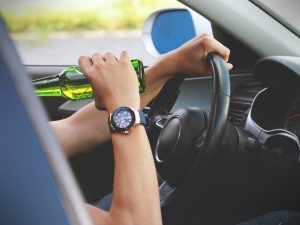 The internet blew up when video footage exploded in everyone’s news feeds of Sean Combs assaulting Cassie Ventura. Expectedly, responses followed. Most decried and denounced Combs’s behavior while others showed support by iterating that he should be considered “innocent until proven guilty.” And that’s just not true. While no one disagrees over the morality of what’s displayed on the video, the distinction between “innocent until proven guilty” and “innocent unless proven guilty” opens up a conversation. The presumption of innocence requires that the prosecution prove that the accused is guilty. The presumption should not be that the prosecution will prove that the accused is guilty. If you’re charged with a crime, an experienced criminal defense lawyer will make clear that you’re innocent unless proven guilty. Let’s get into it.
The internet blew up when video footage exploded in everyone’s news feeds of Sean Combs assaulting Cassie Ventura. Expectedly, responses followed. Most decried and denounced Combs’s behavior while others showed support by iterating that he should be considered “innocent until proven guilty.” And that’s just not true. While no one disagrees over the morality of what’s displayed on the video, the distinction between “innocent until proven guilty” and “innocent unless proven guilty” opens up a conversation. The presumption of innocence requires that the prosecution prove that the accused is guilty. The presumption should not be that the prosecution will prove that the accused is guilty. If you’re charged with a crime, an experienced criminal defense lawyer will make clear that you’re innocent unless proven guilty. Let’s get into it.
You cannot discuss the presumption of innocence without talking about the burden of proof. In criminal cases the State carries the burden of proof and must prove each element of an offense “beyond a reasonable doubt”. The term and concept of burden of proof stem from the Fifth Amendment of the Constitution. The Fifth Amendment earned its claim to fame with its catch phrase, “I plead the fifth.” It carves out safeguards and processes in the legal system. It defines and delineates due process in the law, which is the backbone of the criminal justice system. This mechanism requires that the prosecution prove that the accused is guilty. In summary, the Fifth Amendment states:
No person shall be held to answer for a capital, or otherwise infamous crime, unless on a presentment or indictment of a Grand Jury, except in cases arising in the land or naval forces, or in the Militia, when in actual service in time of War or public danger; nor shall any person be subject for the same offence to be twice put in jeopardy of life or limb; nor shall be compelled in any criminal case to be a witness against himself, nor be deprived of life, liberty, or property, without due process of law; nor shall private property be taken for public use, without just compensation.
 Conroe Criminal Lawyer Blog
Conroe Criminal Lawyer Blog










